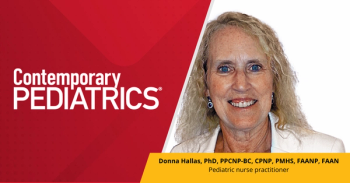
The race for a COVID-19 vaccine
Three scientists discuss the global race for a COVID-19 vaccine.
Recently,
Dr Rasmussen got the conversation going with a colorful history of the vaccine, and then noting that, while presently, more than 150 vaccines against the coronavirus are being researched, only 6 are currently in phase 3. Three currently leading the vaccine race include mRNA ; Replicating RNA (replicon); and DNA. While all share the benefits of being easy to manufacture (none require the infectious virus to build the vaccine), Dr Rasmussen points out each one comes with disadvantages as well. Both mRNA and replicon are not temperature stable/more reactogenic, while DNA is proving difficult to deliver to target cells.
Following Dr Rasmussen, Dr Poland introduced his, “Vaccines: principles, prejudices and porcupines,” starting with a sobering quote from Albert Camus: “They fancied themselves free, and no one will ever be free so long as there are pestilences.” He then dove into the massive controversies currently clouding the medical media landscape, reminding us that “you can have your own opinions, but not your own facts-science is not a democracy,” and reinforcing the principles of scientific evidence, which is intentional, explicit, peer-reviewed, and agnostic to results.
Additionally, Dr Poland noted the public’s collective temperature in response to the vaccine race, citing concerns of cutting corners, vaccines being produced at warp speed and vaccine allocation (utilitarian or egalitarian). And while the bad news was that, with multiple national and international tabletop exercises and 3 novel coronaviruses cross the species barrier in the past 16 years, there is no excuse for not being ready, prepared and in sync for COVID-19 right now, Poland reminded us that, despite the public pressure for treatments and vaccines, there is also no substitute for careful, clinical studies and trials. The scientific community should be careful not to over-promise, and italicized, that despite what first comes to market, the ideal vaccine, among other things, should be able to be mass-produced quickly, have an excellent safety profile, be stable at room temperatures, and able to be stored indefinitely.
Next, Dr Orenstein continued the discussion with a frank look at questions that may still be unanswered, even at the time of the first COVID-19 licensing. These include who priority groups for the vaccine would be, risk factors for vaccine failure and waning immunity, and the impact of the vaccine in reducing transmission. On a brighter note, however, Dr Orenstein reminded us that “vaccine safety continues to be monitored even after the public begins using the vaccine” through a number of watchdog groups, including the Vaccine Adverse Event Reporting System (VAERS) the Vaccine Safety Datalink (VSD), the Post-Licensure Rapid Immunization Safety Monitoring (PRISM), and the Clinical Immunization Safety Assessment Project (CISA).
Finally, Dr Orenstein wrapped up with a reminder to all clinicians to follow recommendations of the Advisory Committee on Immunization Practices (ACIP) and to continue to report cases of COVID-19 to local and state health departments, including vaccination status.
Newsletter
Access practical, evidence-based guidance to support better care for our youngest patients. Join our email list for the latest clinical updates.








